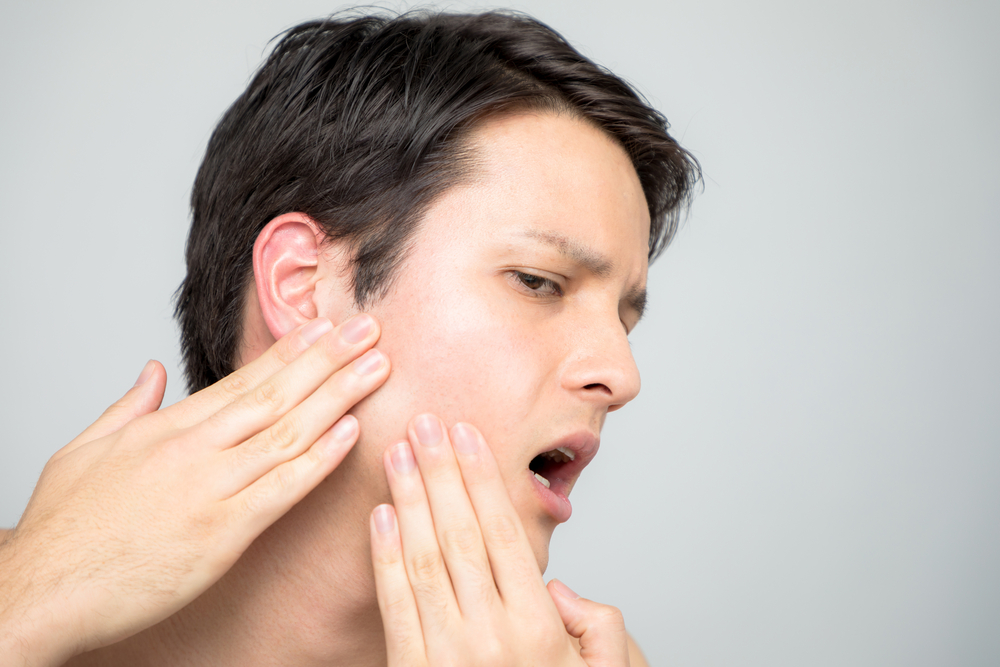
Do you have pain or stiffness in your jaw? Do you notice any popping or clicking when you open or close your mouth? Do you have trouble chewing or speaking? If you answer yes to any of these, you may have a condition called TMJ.
TMJ is short for temporomandibular joint, the joint that links your lower jaw to your skull. This joint lets you move your jaw up and down, side to side, and forward and backward. It is one of the most complicated joints in your body—and it can also be one of the most troublesome.
What Causes TMJ?
TMJ can have various causes. It can result from a combination of factors, such as:
- Injury or trauma to the jaw or the joint
- Arthritis or inflammation in the joint
- Stress or tension that causes you to clench or grind your teeth
- Misalignment or malocclusion of your teeth or bite
- Habits such as chewing gum, biting your nails, or holding your phone between your shoulder and ear
- Genetics or congenital defects
What Are the Symptoms of TMJ?
TMJ can lead to different symptoms that impact your jaw and other areas of your head and neck. Some of the common symptoms are:
- Pain or tenderness in your jaw, face, ear, temple, or neck
- Difficulty fully opening or closing your mouth
- Clicking, popping, or grating sounds in your jaw joint
- Locking or sticking your jaw
- Headaches or migraines
- Earaches or ringing in your ears
- Dizziness or vertigo
- Toothaches or sensitivity
- Difficulty or pain when chewing or swallowing
What Are the Treatment Options for TMJ?
You can find relief from TMJ with different treatment options tailored to your specific symptoms and causes. Some of the treatment options are:
Home Remedies
You can try some simple measures at home to ease your pain and discomfort. These include applying ice or heat packs to your jaw and taking over-the-counter pain relievers. Others are massaging your jaw muscles, doing gentle jaw exercises, avoiding hard or chewy foods, and practicing relaxation techniques.
Dental Treatments
Your dentist can help you with dental procedures that can improve your TMJ. They can recommend adjusting your bite or fitting you with a mouth guard or splint to prevent clenching or grinding.
They can also repair damaged teeth or perform orthodontic treatment to correct misalignment.
Medical Treatments
If your TMJ stems from arthritis or inflammation, your doctor may prescribe anti-inflammatory drugs, steroids, muscle relaxants, or antidepressants. You can also get botulinum toxin (Botox) injections to relax your jaw muscles. In very few cases, patients may undergo an operation to fix or change their joints.
How to Prevent and Cope With TMJ
To keep your jaw healthy, follow these tips: Brush your teeth and see your dentist regularly. Avoid habits that stress your jaw, such as chewing gum or biting your nails. Use a soft pillow and sleep on your back or side. Consume a healthy diet and drink lots of water. Exercise and stretch your neck and shoulders often. Seek help if you have stress, anxiety, or mental health concerns.
Conclusion
TMJ can be a painful and frustrating condition that affects your quality of life. But with proper diagnosis and treatment, you can overcome it and enjoy a healthy and happy smile.
For more information on TMJ, visit Core Chiropractic at our Topeka, Kansas, office. Call (785) 408-7150 to schedule an appointment today.


